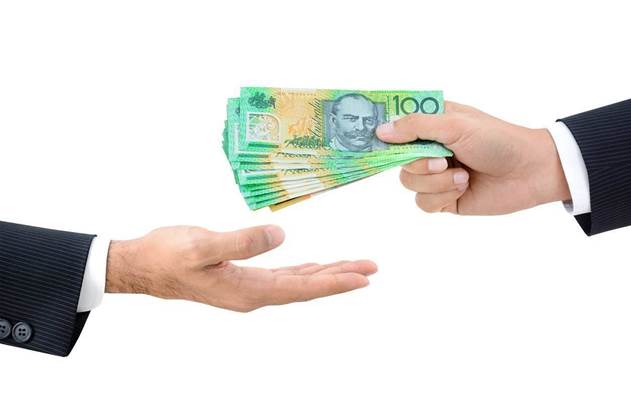Telstra will compensate 42,000 customers for selling them NBN plans at speeds that weren't achievable.

The Australian Competition and Consumer Commission (ACCC) today revealed Telstra had offered to reimburse customers on fibre-to-the-node (FTTN) and fibre-to-the-building (FTTB) NBN connections who got nowhere near their promised maximum speeds.
Telstra admitted in May that thousands of its NBN customers were sold broadband plans with unattainable speeds.
The telco's offer of compensation applies to customers who purchased the 'super fast speed boost' plan from either Telstra or its Belong subsidiary on an FTTN or FTTB NBN connection between September 2015 and this month.
Most of those affected bought a tier offering maximum download speeds of up to 100 Mbps and maximum upload speeds of up to 40 Mbps.
ACCC chairman Rod Sims said many of these customers not only could not achieve the maximum speeds, they couldn't even achieve the top speeds of the next tier down.
The ACCC found 56 percent of FTTN customers (26,497 users) could not receive the promised 100/40 Mbps speeds, and of those, 9606 users could not even receive 50/20 Mbps speeds.
“In essence, people were paying more to get higher speeds that they just weren’t able to get," Sims said in a statement.
A further 6352 FTTN users could not receive the 50/20 Mbps speeds promised as part of their plan, and 9342 customers weren't able to achieve their plan's 25/5 Mbps promise.
The ACCC said Telstra had admitted to likely contravening Australian consumer law.
The telco has offered the regulator a court-enforceable undertaking to refund customers and offer options to change plans and exit contracts without incurring a fee.
It has also promised to conduct a review of each customer's attainable speeds within four weeks of connecting a new service, and notify the customer to offer remedies if it falls below what was advertised.
Telstra said it would contact affected customers over the next few weeks.
“As it is not possible to accurately determine what speed the nbn can deliver to a customer prior to connection, we have been reviewing the speeds of customers who take up a speed boost on their FTTN or FTTB NBN services after connection," consumer and small business group executive Vicki Brady said in a statement.
"We have been undertaking this review since May 2017 and, where we identify they cannot attain the benefit of the speed boost, we have been contacting them to provide refunds."
NBN Co has previously admitted that one-third of active fibre-to-the-node (FTTN) services aren't technically capable of achieving speeds over 50 Mbps.
Industry problem
However the ACCC noted this was not a problem limited to Telstra; the regulator is currently monitoring the performance of broadband speeds across the industry, and has said it will likely take several ISPs to court before the end of the year over slow broadband speeds and inflated performance claims.
“We will continue to investigate other retail service providers selling broadband plans over the NBN and take enforcement action where appropriate," Sims said today.
"As we’ve said previously, we expect RSPs [retail service providers] to provide consumers with accurate information up front about the internet speeds they can expect to receive, and then deliver on those promises.”
Sims also noted that the Telstra issue - which stems from technical limitations of FTTN and FTTB lines - was distinct from the slow speeds caused by ISPs not purchasing enough CVC from NBN Co.
The telco has been using telemetry robots in its networks for the past 18 months to ensure it is buying enough CVC to maintain service levels.
He said the ACCC was urging all ISPs to advertise the typical speeds a customer could expect during peak hours, and the regulator expected ISPs to add this to their advertising "over the next month".
“Our message to retailers is that if you advertise a particular speed and customers cannot get that speed, you will risk breaching the Australian consumer law,” he said.



_(20).jpg&h=140&w=231&c=1&s=0)

_(28).jpg&h=140&w=231&c=1&s=0)





 iTnews Executive Retreat - Security Leaders Edition
iTnews Executive Retreat - Security Leaders Edition
 iTnews Benchmark Awards 2026
iTnews Benchmark Awards 2026
 iTnews Cloud Covered Breakfast Summit
iTnews Cloud Covered Breakfast Summit
 The 2026 iAwards
The 2026 iAwards












_(1).jpg&h=140&w=231&c=1&s=0)



